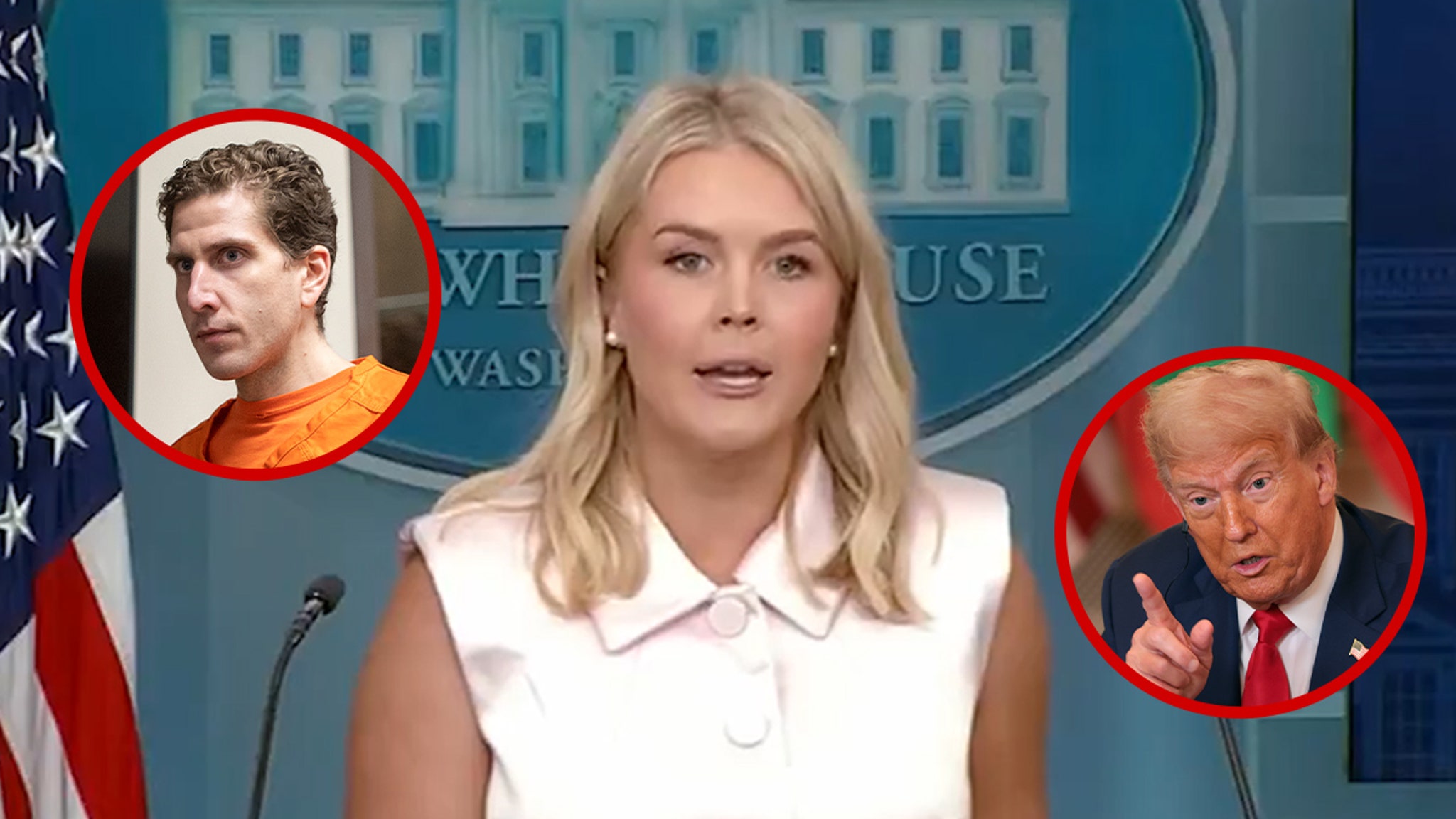Trump Urges Judge to Force Kohberger to Explain Motive in Idaho Murders Case
By [Your Name], July 24, 2025
BOISE, ID — As Bryan Kohberger, the convicted killer of four University of Idaho students, faces sentencing today, President Donald Trump has publicly called for the presiding judge to compel Kohberger to explain the motive behind the brutal 2022 murders. The White House echoed this sentiment, with Press Secretary Karoline Leavitt stating that if it were up to Trump, Kohberger would have been forced to “publicly explain why he chose to steal these innocent souls.” The intervention has sparked debate over judicial process, victims’ rights, and the limits of presidential influence in ongoing legal cases.
A High-Profile Plea Deal
Kohberger, 30, pleaded guilty on July 2, 2025, to four counts of first-degree murder and one count of burglary for the November 2022 stabbing deaths of Kaylee Goncalves, 21, Madison Mogen, 21, Xana Kernodle, 20, and Ethan Chapin, 20, in an off-campus home in Moscow, Idaho. The plea deal, struck weeks before a scheduled trial, spares Kohberger the death penalty in exchange for four consecutive life sentences without parole and an additional 10 years for burglary. The agreement, however, does not require Kohberger to disclose his motive or express remorse, leaving many questions unanswered.
The murders shocked the small college town and gripped the nation due to their brutality and lack of a clear motive. Kohberger, a former criminology PhD student at Washington State University, was arrested six weeks later in Pennsylvania after a nationwide manhunt. Evidence, including DNA on a knife sheath and cellphone data placing him near the crime scene, was overwhelming, yet no explanation for the killings has emerged.
Trump’s Unprecedented Intervention
On July 21, Trump took to Truth Social, expressing frustration over the plea deal and urging District Judge Steven Hippler to demand Kohberger explain his actions. “These were vicious murders, with so many questions left unanswered,” Trump wrote. “While Life Imprisonment is tough, it’s certainly better than receiving the Death Penalty but, before Sentencing, I hope the Judge makes Kohberger, at a minimum, explain why he did these horrible murders. There are no explanations, there is no NOTHING.”
During a Wednesday press briefing, Leavitt reiterated the administration’s stance, offering condolences to the victims’ families and denouncing Kohberger as a “vicious and evil killer.” She emphasized that Trump would have ensured Kohberger faced public accountability for his motives, despite legal constraints. The comments reflect a broader public desire for closure, with some, like Kaylee Goncalves’ father, Steve, praising Trump’s statement as evidence of the victims’ enduring impact.
Legal and Ethical Limits
Judge Hippler, presiding over the case in Boise, has acknowledged the families’ desire for answers but stressed that the U.S. Constitution’s Fifth Amendment protects Kohberger’s right to remain silent. During the sentencing hearing, Kohberger declined to speak, saying only, “I respectfully decline,” when offered the opportunity to address the court. Hippler noted that focusing on the “why” of the crime risks giving Kohberger “relevance, agency, and power,” potentially feeding his desire for attention. “The need to know what is inherently not understandable makes us dependent upon the defendant,” Hippler said.
Legal experts have called Trump’s intervention unusual, noting that judges cannot compel defendants to speak, even after a guilty plea. Anne Emerson, a legal observer, described the president’s comments as reflective of public grief but unprecedented in an ongoing judicial process. “It speaks to the psyche of America right now,” she told KOMO News. The Goncalves family, outspoken critics of the plea deal, argued it should have required a full confession and details about the murder weapon, stating, “We deserve to know when the beginning of the end was.”
Mixed Reactions and Ongoing Pain
The plea deal has divided the victims’ families. While the Mogen and Chapin families supported it as a step toward healing, the Goncalves family called it a “betrayal” that robbed them of a trial. The nearly three-hour sentencing hearing was emotional, with parents, siblings, and surviving roommates confronting Kohberger, who appeared detached in his orange jumpsuit. Latah County Prosecuting Attorney Bill Thompson, moved to tears, recommended life imprisonment, while Hippler described the tragedy’s impact: “Parents who took children to college in a truck filled with moving boxes had to bring them home in hearses lined with coffins.”
Public sentiment on X reflects similar frustration. One user, @Rosievortwx, wrote, “He should 100% have to speak his motive as part of the plea deal,” while another, @Totinhiiio, noted the debate over whether demanding a motive provides closure or is “pointless” given the life sentences.
Broader Implications
Trump’s comments come amid broader concerns about his influence on the judiciary, with some critics citing a “constitutional crisis” due to his pressure on courts. Hippler had previously reported receiving phone calls attempting to sway his decision, calling them “highly inappropriate.” The case also highlights ongoing tensions over plea deals in high-profile cases, particularly when public demand for answers clashes with legal protections.
As Kohberger’s sentencing concludes, the lack of a motive continues to haunt the victims’ families and the Moscow community. Judge Hippler has lifted a gag order, allowing prosecutors and police to share more details, and he plans to review sealed documents for potential release. Whether Kohberger will ever reveal his reasons remains uncertain, but for now, his silence speaks louder than any explanation.
Sources: The Independent, Newsweek, NewsNation, The Spokesman-Review, Daily Mail, USA Today, X posts
